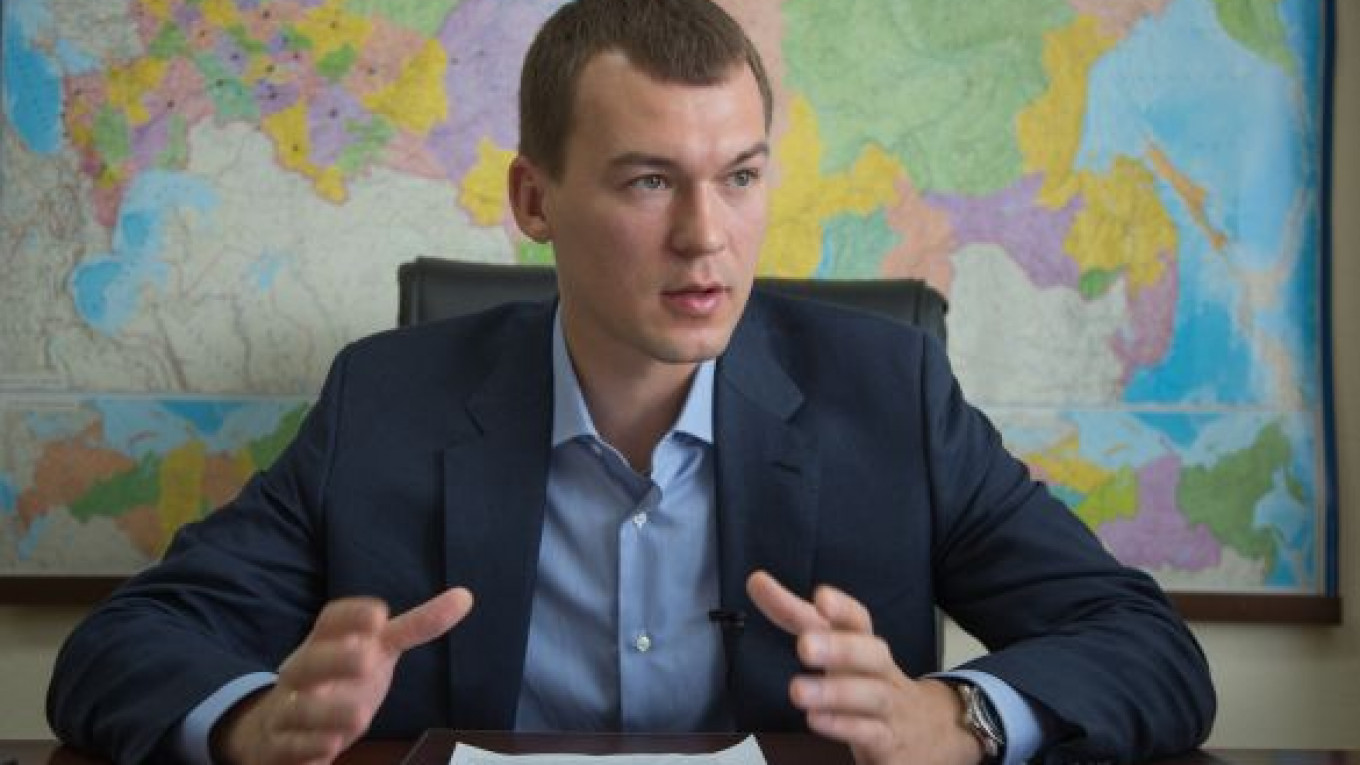Even those who worked out the bill to ban the circulation of dollars in Russia are convinced it will not pass the Duma, but said at a news conference on Monday that it was a start to draw government attention to dangers of over-reliance on foreign currency.
On Nov. 13, the Liberal Democratic Party, or LDPR, submitted a bill to the State Duma, which, if adopted, would ban the use of U.S. currency in the country.
In a supplementary note to the legislation, the dollar was said to be on the brink of collapse and the growing confidence of Russian citizens in the greenback was tagged as "very dangerous."
The author of the bill, former Moscow mayoral candidate Mikhail Degtyarev, said in the note that if the U.S. public debt were to continue to grow at current rates, the dollar system is doomed to collapse by 2017.
"We do not think that to have 45 percent of the country's reserves in dollars is a good idea. They should be backed by gold instead," Degtyarev said the news conference dedicated to his initiative.
But judging by the feedback he had received in the Duma, the law is unlikely to pass, Degtyarev said.
"A bill like this is more of an instrument for a member of the Duma, of the opposition party, to start a discussion … on the future of the ruble and external financial transactions, and what we should sell resources and other goods for," the lawmaker said.
Most financial analysts were against the bill for many reasons, among them that one of Russia's main sources of income — crude oil sales — are conducted in dollars, whether the country likes it or not.
Another reason was that passing the bill would violate citizens' right to have possessions denominated in foreign currency, which would be a step back in terms of liberalizing financial markets.
But the initiative nevertheless highlights a serious issue, the experts said.
"Global financial authorities are trying to create an alternative to the single reserve currency that exists today, which offers unprecedented benefits to the country that prints it," said Anton Soroko, an analyst with Finam investment company.
The same striving for an alternative is seen both in measures the countries take to strengthen their currencies, such as the Chinese Communist Party's support of the renminbi exchange rate, and this latest effort to increase the importance of the ruble at the dollar's expense, the analyst said.
Contact the author at [email protected]
A Message from The Moscow Times:
Dear readers,
We are facing unprecedented challenges. Russia's Prosecutor General's Office has designated The Moscow Times as an "undesirable" organization, criminalizing our work and putting our staff at risk of prosecution. This follows our earlier unjust labeling as a "foreign agent."
These actions are direct attempts to silence independent journalism in Russia. The authorities claim our work "discredits the decisions of the Russian leadership." We see things differently: we strive to provide accurate, unbiased reporting on Russia.
We, the journalists of The Moscow Times, refuse to be silenced. But to continue our work, we need your help.
Your support, no matter how small, makes a world of difference. If you can, please support us monthly starting from just $2. It's quick to set up, and every contribution makes a significant impact.
By supporting The Moscow Times, you're defending open, independent journalism in the face of repression. Thank you for standing with us.
Remind me later.






